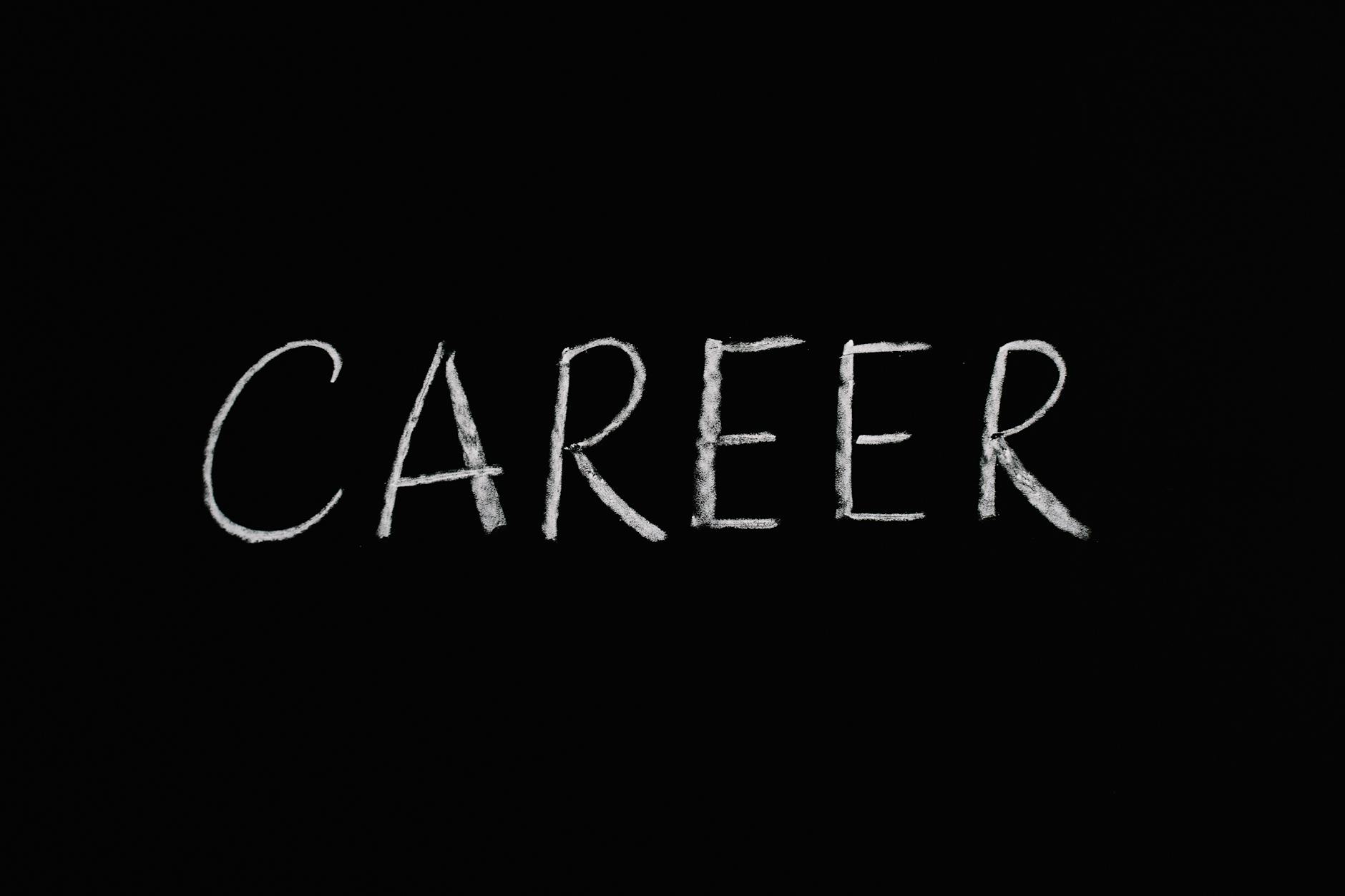Let’s set fire to the tired old phrase, “Follow your passion,” and toss it out with last year’s business fads. Nobody builds a thriving company on daydreams and doodles, though the gurus on Instagram would like you to believe otherwise. If passion paid the bills, everyone would be rich doing what they loved as kids—eating snacks and dodging chores.
This post slices through the fluffy nonsense and gives you the real reasons chasing passion is a losing bet for your business and your wallet. There’s a smarter way to build a business that lasts. Let’s call out the myths, spell out what actually works, and right this ship before another would-be entrepreneur throws it all away chasing the wrong thing.
The Fantasy Land of Passion: Why the Advice Persists
The “follow your passion” mantra has its own fairy-tale castle in our culture. Everyone from well-meaning teachers to trend-chasing influencers loves to hand it out, usually wrapped in a shiny bow at graduation or blasted across Instagram in neon fonts. But how did we get here, and why does this advice stick like glitter after a craft project?
 Photo by Thirdman
Photo by Thirdman
From Commencement Stages to TikTok Feeds
Every June, graduation speakers and bestselling authors dust off the same well-worn script—chase your dreams and “follow your passion.” It makes a catchy sound bite, but it’s more Hollywood than Harvard Business Review. The origins of this advice are a mix of pop culture, wishful thinking, and a misunderstanding of how success actually works. The storyline often skips the boring parts, like decades of grunt work, failures, and pivots.
-
Commencement speeches: Repeated every spring as if reciting a prayer, usually by someone whose “passion” happened to pay off instead of going up in smoke.
-
Viral quotes and memes: Instagram thrives on bold promises and over-simplified wisdom.
-
Self-help authors: Frequently repeat the phrase, glossing over real struggle in the name of optimism.
Media loves a feel-good story, but as explored in this deep dive on passionate interests’ origins, passion isn’t handed down by the dream fairy—you have to stumble into it while doing something real.
Why the Myth Won't Die
The “passion first” advice is sticky because it feels good and promises a shortcut. In reality, it ignores how most people find meaningful, lasting work. If passion were a GPS, it would keep rerouting you through dead ends and side streets, ignoring all the useful road signs.
Here’s why people keep repeating the myth:
-
It’s easy to say, hard to challenge. Nobody wants to rain on someone’s parade with a chart about small business failure rates.
-
It flatters us. Everyone likes to think the secret to unlocking success is already inside us—no boring learning required.
-
It sells hope. Self-help books and coaching programs cash in every time a new batch of hopefuls wants to believe.
This widespread advice waters down a much messier reality. Real business success often starts with effort, not passion, as argued in this analysis of the passion advice trap. Instead of a lightning bolt, meaningful work usually shows up as a slow burn.
Simplifying Life Into a Sound Bite
Here’s where the so-called wisdom truly flops: it oversimplifies a life’s work into a Hallmark card. Not every painter becomes Picasso. Most people passionate about food shouldn’t open a restaurant. Turning love into work often kills the magic—and sometimes your finances.
People want clear steps, but when the advice is “just do what you love,” it leaves out all the heavy lifting. Want proof? Many who build satisfying careers and businesses start with what the world actually needs, learn as they go, and only discover passion once they’ve survived the tough parts—see this guide to following effort, not passion.
In short, “follow your passion” sticks around because it’s the advice no one wants to hear is wrong. But real success looks a lot less magical—and a lot more like work—than any tidy social media quote would have you believe.
The Passion Problem: Most People Don’t Have One (Yet)
Forget what the feel-good quotes say. The idea that everyone has a One True Passion just waiting to be found is mostly wishful thinking. For most people, the search for a "calling" can feel about as productive as looking for a unicorn in a used-car lot.
The belief that you should already know your passion before you even get started is one of the biggest setups for disappointment out there. The truth? Most people stumble their way into meaningful work by getting good at something first—and then passion sneaks up quietly, sometimes years after they begin. If you’re waiting for a lightning bolt to strike, you might grow a beard worthy of a wizard while nothing happens.
Passion Grows from Skill, Not the Other Way Around
 Photo by Yan Krukau
Photo by Yan Krukau
Passion isn’t a starter fuel—it’s the smoke that drifts up after you’ve been at the fire for a while. People don’t usually wake up as cello fanatics or tech entrepreneurs. They mess around with something, get better at it, and one day realize, “Hey, I actually care about this.”
It takes time and repetition to become hooked. Malcolm Gladwell didn’t pull 10,000 hours of practice out of thin air. The point is, you don’t need to feel passionate to start—you need to start, get better, and watch passion show up afterwards.
Here’s what that looks like in real life:
-
You learn a craft (music, coding, baking).
-
At first, you stink at it. The struggle is real.
-
Small wins add up. You stop dreading practice.
-
Others notice your skill. Validation hits different when it’s earned.
-
Guess what? Now you actually enjoy it. Passion as a side effect, not a requirement.
Want more? Research shows people who get great at something often discover new interests and motivation as they improve—rarely before. This story about late-blooming passion cuts bluntly through the myth.
Waiting for Passion = Waiting Forever
Picture someone waiting on their front step for a magical delivery—except this package is their passion, and the truck’s been stuck in traffic since 1998.
Think about how weird it would be if we did this with food:
-
“I’m not eating dinner until I’m positive what my absolute favorite meal is.”
-
“I’ll start cooking when I know it’s going to be love at first bite.”
Sound ridiculous? That’s how most people treat their search for passion.
The real kicker: the passion-lightbulb moment almost never happens. Most end up just waiting, circling the things they’re “supposed” to care about and ignoring the stuff they could actually get good at if they just gave it some time.
If you keep scanning the sky for your “true call,” you’ll miss the opportunities at ground level. Studies and dozens of honest stories (see people discovering their passion late) prove that if you’re not passionate right now, it’s not some personal failure—you’re in the majority.
Stop treating passion like a clearance sale that you missed out on. The key is to jump in, mess up, get better, and see what sticks. Your “aha” moment will probably only show up if you’ve slogged through the “ugh” phase first.
If you’re waiting for inspiration to slap you awake, you may fall asleep at the wheel. Most people don’t start out knowing their calling. What matters is starting anyway. Here are practical tips for finding direction when you feel lost instead of hoping for a cosmic memo.
The bottom line: searching for passion is like chasing a rainbow. Doing the work is how you find the gold.
How Following Your Passion Can Bankrupt Your Wallet and Your Spirit
Blissfully ignoring the warning signs and charging ahead with your passion as a career might sound like a bold move. But that giddy leap? It often lands people straight into a ditch—financially, emotionally, or sometimes both. Blind enthusiasm doesn't pay the bills, and it definitely won’t save your sanity if your dream turns into a nightmare.
Your Passion Doesn’t Always Pay The Rent
 Photo by Towfiqu barbhuiya
Photo by Towfiqu barbhuiya
The phrase “do what you love and the money will follow” sounds comforting until the rent is overdue and passion alone can’t cover groceries. The brutal reality? Most passions are tough markets to crack. Even those with talent and drive see their finances take a beating before (if) they see success.
Think about these real-life examples:
-
Ballerinas: Most spend years (and piles of money) training, only to earn salaries lower than entry-level office workers. Studios and professional troupes are rare, making stable gigs even harder to land.
-
Poets: Haiku won’t pay your internet bill. Literary magazines may send a free copy as “payment.” The rare breakout star still faces lean years before a breakthrough—if it ever comes.
-
Pro Gamers: For every YouTube highlight, thousands chase endless tournaments for pennies. The odds of going full-time are worse than winning the lottery.
For most people, these passions won’t float a one-bedroom apartment, let alone fund a family. Trying to wring cash from your favorite hobby can leave even the most devoted waking up broke and stressed. Not convinced? There’s a whole library of stories warning against sinking everything into a passion project with empty pockets as the only sure result. You can read about the risks in “The Hidden Dangers of Following Your Passion” on Unmistakable Creative.
Even at the highest level, finding balance between your heart’s work and paying the bills is tough—and jumping straight into passion work can pile on risk. Harvard Business Review explores how following your passion can lead to financial trouble in "Striking a Balance Between Your Passion and Your Paycheck" (read here).
Love Can Turn Into Loathing
Turning your passion into work often feels like swapping a sun-drenched beach for a cubicle—but with sand in your shoes and no vacation days.
When the thing you adore becomes your daily grind, the joy that once fueled you can fade fast. The deadlines stack up; the freedom shrivels. You find yourself measuring your passions in invoices and spreadsheets instead of fun and excitement.
Imagine baking your favorite cake every day—for someone else’s taste buds, on someone else’s schedule. Suddenly, what was once a treat is now a chore. The oven’s still hot, but your love for the recipe is stone cold.
Here’s how this switcheroo usually plays out:
-
Creativity gets replaced by cash worries.
-
The pressure to perform sucks out the spontaneity.
-
Rejection stings even more when it’s your dream on the line.
You used to love painting, but now a blank canvas taunts you like Monday morning at the DMV. It’s easy to lose the original spark when what you loved doing in your free time becomes a race against the bills.
Studies show the dark side of passion projects: people working in their “dream job” are often expected to do more for less pay, and are at higher risk for burnout (explained in detail). Blindly chasing passion sometimes turns work into a never-ending treadmill—joy faded, wallet empty, and spirit drained.
Sometimes, following your passion is like hugging a cactus—the tighter you hold on, the more it hurts. So before you trade in your day job for your passion, remember: turning love into labor may rob you of the very thing you cherished most.
Building Skills Beats Chasing Rainbows
Swapping the “chase your dreams” advice for “build a real skill” isn’t a downgrade—it’s a shortcut to confidence, purpose, and yes, actual passion. You don’t have to be born obsessed with spreadsheets, sales, or code to get fired up about work. The secret is less about chasing a mythical calling and more about building the muscle that makes real satisfaction possible.
Competence Feeds Confidence AND Passion
 Photo by RDNE Stock project
Photo by RDNE Stock project
Skills are the magic beans of career growth. You plant them, water them (with awkward practice), and eventually watch whole forests of confidence and motivation pop up. Research repeatedly shows that the holy trinity driving long-term passion and fulfillment isn’t chasing sparks—it’s:
-
Autonomy: The more control you get over your work, the more you enjoy it.
-
Mastery: Getting better at what you do feels addictive—likely because real progress is naturally rewarding.
-
Feeling useful: Knowing your work actually matters to someone is a far stronger motivator than empty advice.
A practical review on mastery learning proves that getting good at something makes you more likely to enjoy and stick with it. Mastery isn’t just for violin prodigies or chess nerds. It’s for the cook who finally plates a perfect steak. It’s for the new sales rep who closes their first big deal.
The kicker? Confidence doesn’t show up first. It grows only when you see proof you can do hard things. Experts call this the competence-confidence loop: try, improve, succeed, then repeat. Passion sneaks in when you notice, “I’m actually pretty good at this, and it feels amazing.”
Even if you start off faking it, the right skills turn that fake into real skill—and real skill into honest, earned confidence. If you want a deeper dive, check out this summary on cultivating mastery for sustainable change.
Curiosity Is the Real Career Superpower
Our culture puts “passion” on a pedestal. In reality, curiosity does the heavy lifting. Instead of waiting for a single lightning strike of inspiration, it’s smarter to nurture lots of little sparks. Flexible curiosity is a life raft in a world that never stands still.
Obsessing over just one passion is like eating only pizza forever—eventually, you’ll want something else. People who stay curious build resilience, discover new interests, and turn small “hmm, that’s interesting” moments into much bigger wins down the line.
So how do you spot what could actually become a passion down the road? Try these habits:
-
Notice what you Google in your free time. If you keep falling down Wikipedia rabbit holes about a subject, there’s a hint.
-
Pay attention to envy. If you’re jealous of someone’s work, it signals what you care about.
-
Volunteer for new tasks at work. Even boring jobs can reveal surprising interests or hidden strengths.
-
Track what feels easy. The skills that feel natural are often the ones you’re primed to develop.
-
Ask “What’s next?” Instead of declaring, “This is it!” keep asking what you want to learn next.
Curiosity fuels progress—plain and simple. It’s the little engine behind career growth and innovation, pushes you to try new things, and rescues you from rut city.
If you want powerful proof, curiosity is now rated as the top skill for workplace success. People who poke around and ask questions always find new angles—sometimes accidentally discovering a career they love.
Stop chasing rainbows. Build skill, follow curiosity, and you’ll find more gold than you ever will waiting for destiny to knock.
Trading Myths for Mingling with Reality: Smarter Career Moves
It’s easy to get tangled up in glossy myths about careers—especially the one about staking your whole future on “that one thing you love.” If you want real results, it pays to trade in the fantasy for a battle-tested plan. The smartest moves? Build a stack of real skills. Make yourself too useful to ignore. Stop waiting for passion to knock and start raising your own stock in the job market.
Stack Your Skills and Stack the Deck
 Photo by Anna Tarazevich
Photo by Anna Tarazevich
If careers were poker, putting all your chips on one card—your so-called “passion”—is how you end up broke and out of the game. The better move is to stack the deck by piling up skills like aces up your sleeve. Why? Because the more you can do, the more options you have.
Don’t fall for the myth that specialists rule the world. Rock the jack-of-many-trades approach and master a few power combos. For example, mix marketing chops with basic coding, or add public speaking to your design background. Result? You’re suddenly rare. Employers love a good combo plate.
Want a sharper resume? Build a “skills sandwich” with these layers:
-
One main technical skill: Like data analysis, design, or troubleshooting—something people need every day.
-
A secondary skill that complements: Sales if you’re in tech, writing if you’re in science, or project management for almost anything.
-
Soft skills: Communication, teamwork, or leadership—these are the mayo and lettuce that make the whole thing work.
Nobody wakes up knowing it all. Get practical: audit your skills, figure out what’s missing, and fill the gaps. Looking for ideas? Scan suggestions in 20 new skills to learn for professional growth.
This isn't just about hedging bets—it’s how you future-proof any career. The world changes fast; people who stack fast get ahead. If you’re still not sure what to add, ask yourself: “What would make me dangerous (in a good way) if I learned it this year?” Keep stacking. Don’t bet your savings on one tired card.
Move Up by Making Yourself Useful
Your value in any job is simple: are you the person who fixes things, gets results, or solves problems everyone else runs from? Nothing outshines usefulness. It’s the real key to job security and advancement.
Forget breathless advice about “finding your why” for a second. Focus on filling needs in the workplace. When someone says “I can count on you”—that’s worth more than any so-called passion parade.
This is how you make yourself indispensable:
-
Spot problems early. Jump in before anyone asks.
-
Take on tasks nobody wants. You’ll learn twice as fast (and earn respect).
-
Connect people. Become the glue in any group—your network is the real safety net.
-
Stick to deadlines, own your mistakes. Reliability is your superpower.
-
Keep learning. Training is never wasted, even in weird areas (read up on ways to advance your career skills).


![Why “Follow Your Passion” Will Wreck Your Business (And Bank Account) [Updated 2025]](http://www.newonlinelife.com/cdn/shop/articles/peachfuzz5000_two_kids_racing_in_business_suits_in_race_cars__fee9e5d9-437e-44f6-8327-79e00049f09c_3.png?v=1757806908&width=1100)